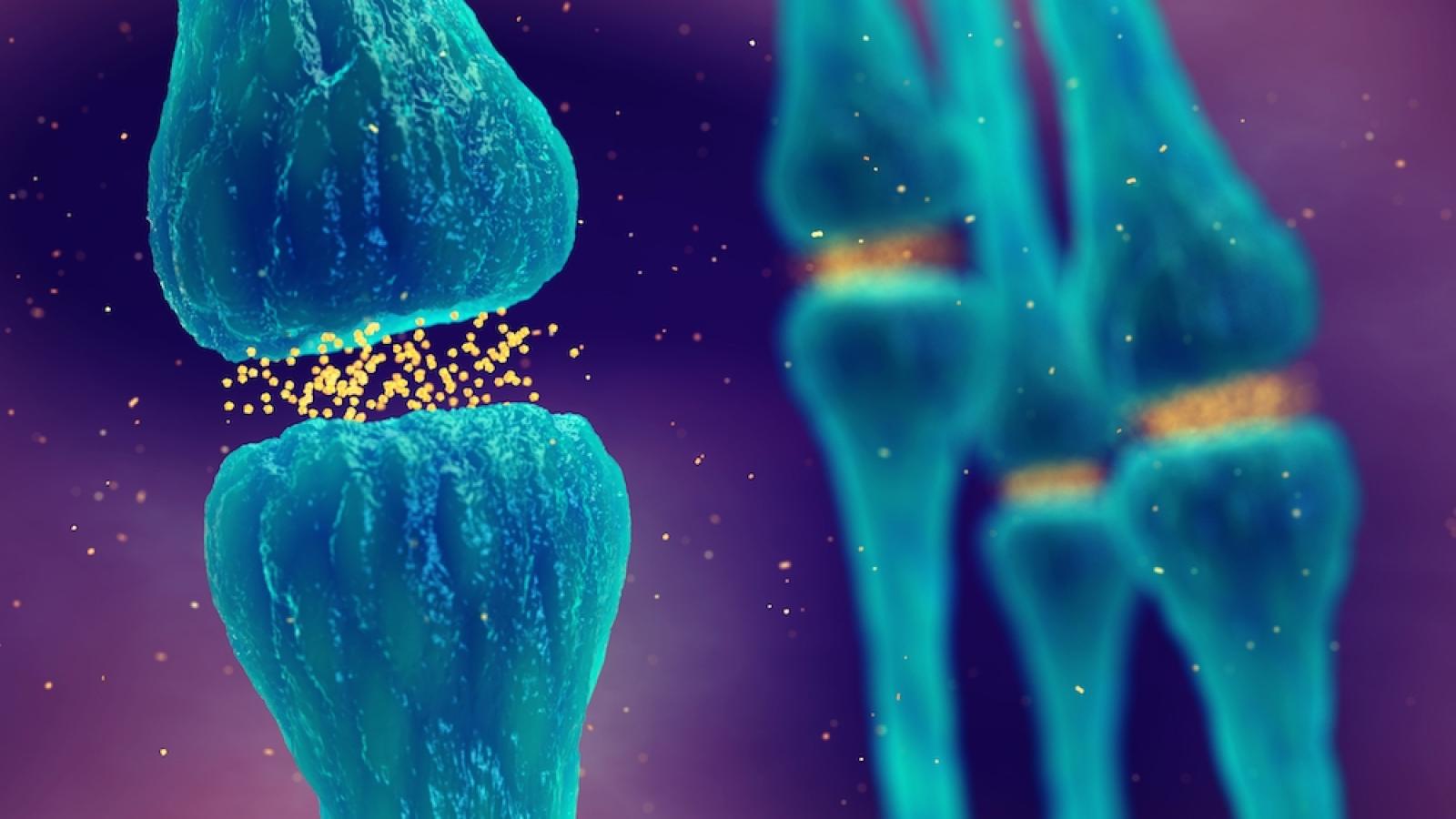An international team of researchers led by Prof Patrik Verstreken at VIB-KU Leuven has succeeded in reversing the harmful effects of Tau, a protein implicated in over 20 different diseases, including Alzheimer’s disease. Carried out in collaboration with UK DRI researchers, the promising animal model study is an important first step in the exploration of a new therapeutic avenue targeting cognitive decline.
The Tau protein is implicated in numerous neurodegenerative disorders including Alzheimer’s disease and other types of dementia. In these diseases, Tau aggregates together within cells of the brain, such as neurons, and has been shown to drive the extensive neurodegeneration observed. While such Tau aggregates are closely correlated with cognitive decline, it is still not fully understood how the two phenomena are linked.
In this new study, published in the journal Neuron, Prof Verstreken teamed up with Prof Bart De Strooper and Prof Tara Spires-Jones from the UK DRI, to focus on the neuronal connections in the brain, synapses, and to find clues as to how Tau may be exerting its toxic effects. Their investigations led them to another protein found in synapses, which Tau interacts with, Synaptogyrin-3.
Performing a series of experiments in a mouse model of Alzheimer’s disease, the team eliminated Synaptogyrin-3, finding that they could prevent the loss of synapses caused by the Tau protein. Furthermore, the decline of working memory observed in this mouse model was also reversed.
Recent evidence suggests that neuroinflammation may be another key driver in the neurodegenerative process, however the researchers made the intriguing finding that levels did not change in this study. The team therefore propose that Tau’s effects on neuroinflammation and loss of connectively in the brain are independent of each other.
In the next stages of the Synaptogryin-3 investigation, Prof Venstreken plans to develop drugs that lower levels of the protein in the brain. If successful, they will test the therapeutic value of this approach for tauopathies, eventually in those living with these conditions.
Reference
Lowering Synaptogyrin-3 expression rescues Tau-induced memory defects and synaptic loss in the presence of microglial activation Largo-Barrientos et al. Neuron 2021
Article published: 20 January 2021
Banner image: nobeastsofierce/Shutterstock.com
The protein Tau is implicated in over 20 different neurodegenerative diseases
